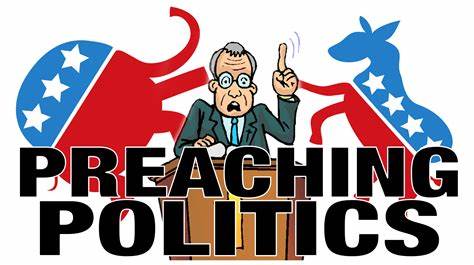Preaching Jesus In A Politically Charged World
Preaching Jesus in a Politically Charged World
In the last couple of posts we began to explore how to preach about politics. In this post we continue that subject as we consider how to go about preaching Jesus in a politically charged world like ours. I live in the United States, and we have just gone through the most partisan, divided election in our history. From what I’ve read, most democracies in the world face similar divisions. So, how do we go about preaching the person and values of Jesus in this setting? In the last post we looked at the fact that Jesus was pretty apolitical. Among his disciples he had a collaborator with Rome (Matthew) and a Zealot (Simon), men who were on opposite sides of the political spectrum of that day. Did he care which one was more politically correct?
Did Jesus Care Who Was On the Human Throne?

Phillip Yancey
Christian author Phillip Yancey was once invited as a speaker to a gathering that was going to address “Culture Wars”. Here’s how he describes preparing for his talk:
To prepare for my talk, I went through the Gospels for guidance, only to be reminded how unpolitical Jesus  was…. Today, each time an election rolls around Christians debate whether this or that candidate is “God’s man” for the White House. Projecting myself back into Jesus’ time, I had difficulty imagining him pondering whether Tiberius, Octavius, or Julius Caesar was “God’s man” for the empire. (What’s So Amazing About Grace, p. 260)
was…. Today, each time an election rolls around Christians debate whether this or that candidate is “God’s man” for the White House. Projecting myself back into Jesus’ time, I had difficulty imagining him pondering whether Tiberius, Octavius, or Julius Caesar was “God’s man” for the empire. (What’s So Amazing About Grace, p. 260)
Jesus’ Political Statement In A Politically Charged World
The only time Jesus was asked directly about a political viewpoint was when a group came to him to try to trick him into a gaffe, as recorded in Matthew 22.
17 Tell us then, what is your opinion? Is it right to pay the imperial tax[a] to Caesar or not?”
18 But Jesus, knowing their evil intent, said, “You hypocrites, why are you trying to trap me? 19 Show me the coin used for paying the tax.” They brought him a denarius, 20 and he asked them, “Whose image is this? And whose inscription?”
21 “Caesar’s,” they replied.
Then he said to them, “So give back to Caesar what is Caesar’s,and to God what is God’s.”
22 When they heard this, they were amazed. So they left him and went away.
Apparently, Jesus didn’t care who was on the throne of the empire. He was more concerned about who was on the throne of individual hearts.
Preaching Jesus in a divided world
So, how do we go about preaching Jesus in a politically charged world like ours? I think we need to keep in mind the following things:
Jesus Taught Us To Go Undercover
When we read the images that Jesus used to describe how his followers would relate to the world, he used images like these: salt and light; yeast working its way through bread dough; sheep living among wolves, and wheat growing among the weeds. What do these images say to us as we think through what preaching Jesus in a politically charged world means?
 I think the first thing it means is that we have to equip our people to thing of themselves as people who are trying to change society, but not by force. Rather, we work from the inside, quietly. Think about what it means to put salt on meat as a preservative and to make it taste good. A little salt is all that’s needed, now a huge scoop. And yet, the presence of the salt preserves the meat.
I think the first thing it means is that we have to equip our people to thing of themselves as people who are trying to change society, but not by force. Rather, we work from the inside, quietly. Think about what it means to put salt on meat as a preservative and to make it taste good. A little salt is all that’s needed, now a huge scoop. And yet, the presence of the salt preserves the meat.
Jesus Taught Us To Dispense Grace
The other aspect of preaching Jesus in a politically charged world is to remind our people that the essence of our  faith is grace. We don’t fit in the world–that’s what Jesus said. We are like pilgrims, visiting this place, but going to our home in heaven. In the meantime, we are to establish the values of the Kingdom of our King.
faith is grace. We don’t fit in the world–that’s what Jesus said. We are like pilgrims, visiting this place, but going to our home in heaven. In the meantime, we are to establish the values of the Kingdom of our King.
In history, those values have created schools, hospitals, drug-treatment centers, places of caring for abused women and children, health clinics, etc. All because Christians were viewing the world as the place to make a difference in Jesus’ name.
What Does It Mean, Then, To Preach Jesus?
That’s the question. We preach Christ as the crucified savior, who came to change our lives. And when our lives are changed, we will see the world in a different way, as a place that God loved enough to send Jesus. And we will try to let this world experience Jesus.
Next time we’ll look more at whether we should preach about the issues of the day in our messages. For now:
John MacArthur is a well-known preacher in Southern California. He and I would likely not agree on many theological things, and maybe even practical things. But here is his advice about preachers preaching about politics.



